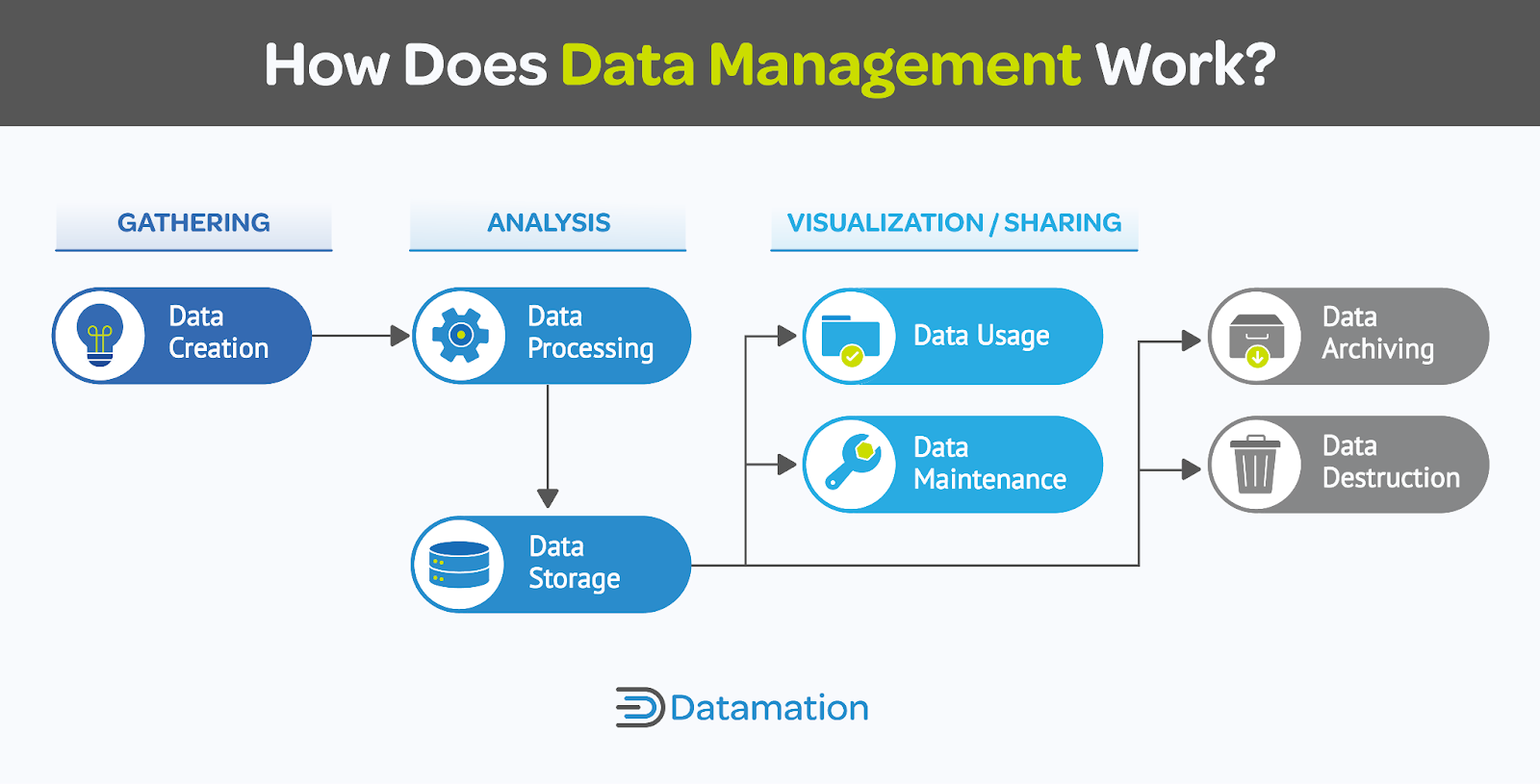Data management is the IT discipline focused on ingesting, preparing, organizing, processing, storing, maintaining, and securing data throughout the enterprise. Data management is typically the responsibility of a data architect or database administrator, and the goal is ensuring that the organization’s data is consistent, usable, and secure across all enterprise systems and applications. End-to-end data management is aspirational for most enterprises, but all businesses should have an intentional, overarching data management strategy in place to guide their work.
Effective data management is done using a host of software-based tools that render data consistent across all systems, ensure it is of highest quality, and ensure that it meets security and governance standards. While data management is generally the role of a data architect, it engages nearly every IT discipline.
For example, if a business contracts with outside cloud vendors, data management often falls to the IT application manager, an IT security unit, the database group, an IT vendor contract management group, or even outside users and auditors. It is their responsibility to ensure that the data being furnished by the vendors meets or exceeds the standards that enterprises set for themselves.
When new applications and systems access data from other systems, the application team generally works with the database team to ensure that all data is accessible and usable across all system boundaries. The IT storage group or network group might make decisions about where data is ultimately stored. In short, virtually the entire IT team is involved in data management at some point, with the data architect or data administrator giving direction.
Organizations can employ different types of data management depending upon their unique datasets. While smaller businesses may use a few data management approaches, larger organizations may require a wider range of comprehensive techniques to best care for their data.
Data Architecture
Data architecture is a framework that helps an organization’s IT infrastructure with its data strategy by setting standards on how data is managed throughout its lifecycle. The ultimate goal is to ensure that data is high quality and reliable to inform strategic business decisions.
Data Modeling
Data modeling is a visual representation of an organization’s data, how it moves through the organization, and how it relates. The model sets rules for these relationships and determines how data moves according to those rules.
Data Pipelines
Data pipelines are automated workflows or pathways that allow data to get to their desired locations after it is processed. This enables a seamless extraction, transformation, and loading (ETL) of data from various sources to target specific destinations such as data warehouses or analytics platforms.
Data Cataloging
A data catalog involves the comprehensive inventorying or categorizing of an organization’s data assets and encompasses important metadata such as data definitions, lineage, usage, and access controls. Data catalogs frequently include additional functions that expedite data exploration and facilitate personalized queries and optimize data use.
Data Integrations
Data integration is the process of combining data from various sources into a complete, accurate, and up-to-date dataset for analysis, reporting, and operational purposes. Specific data techniques such as data replication, synchronization, and API-based connections facilitate seamless data exchange and allow these data to operate collaboratively across platforms or departments within the organization.
Data Governance
Data governance is a set of rules, strategic frameworks, policies, and processes to assure data quality, security, and compliance of an organization’s data assets. Rules and responsibilities are involved to enforce data standards and controls; establishing mechanisms for data stewardship, monitoring, and enforcement, mitigates risks and maximizes the value of data sources.
Explore IT Tech News for the latest advancements in Information Technology & insightful updates from industry experts!
Source: https://www.datamation.com/big-data/what-is-data-management/







